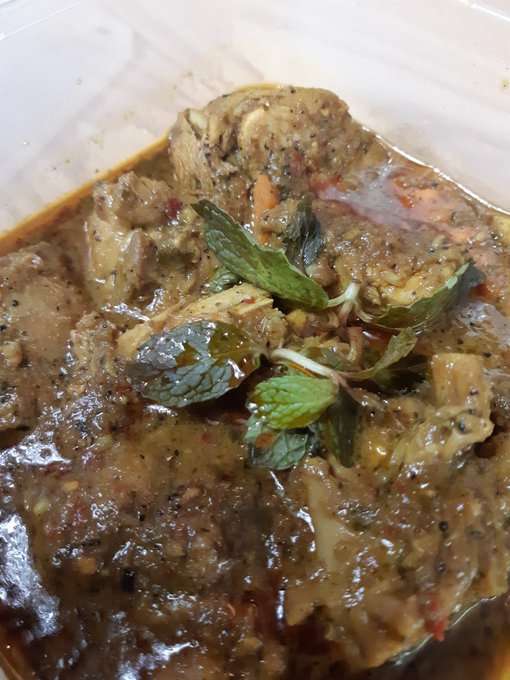MasterChef UK judge deletes tweets as rendang row rages
By Jordan Barnes,The Malay Mail Online 3 hours ago
 PETALING JAYA, April 4 — MasterChef UK judge John Torode has removed his controversial tweets about Malaysia's rendang dish following regional outrage.
PETALING JAYA, April 4 — MasterChef UK judge John Torode has removed his controversial tweets about Malaysia's rendang dish following regional outrage.This was a departure from the seeming glee with which he posted the offending tweets, suggesting that rendang may have originated from Indonesia, and signed off with “namaste”.
“Namaste” is a greeting common to Indians and Nepalese, but the Hindi word is not widely used in Malaysia.
Prior to that, he caused another controversy for criticising Malaysian Zaleha Kadir Olpin, a contestant on the UK reality show, for serving chicken rendang without crisping up the skin.
The Australian addressed the matter again last night in another since-deleted tweet attempting to discuss the origin of rendang, and again signed off with “namaste”, in apparent disregard to earlier criticism.
“Thanks. I mean with Indians, Malayas, Chinese altogether there are so many blurred lines but thanks anyway. Namaste.”
Torode has also deleted any other replies and tweets referring to Malaysia or rendang.
Zaleha was eliminated after failing to impress Torode and his co-host, Gregg Wallace, with a nasi lemak served with chicken rendang and prawn sambal.
In Malaysia, the topic stirred national debate, drawing responses from Prime Minister Datuk Seri Najib Razak, former PM Tun Dr Mahathir Mohamad and the British High Commissioner to Malaysia Vicki Treadell.
Celebrity chefs Datuk Redzuawan Ismail, better known as Chef Wan, and Sherson Lian also weighed in.
Last night, MasterChef UK told Malay Mail Wallace was merely observing Zaleha’s chicken rendang dish did not have crispy skin, as opposed to saying the skin ‘should’ have been crispy.
Indonesians and Malaysians have criticised MasterChef UK’s decision to eliminate a contestant because her chicken rendang was not crispy.
People from the two south-east Asian nations – including the Malaysian prime minister – put aside a longstanding culinary dispute about the origins of the slow-cooked coconut curry to express outrage at what they deemed to be the cluelessness of the judges on the TV cookery show.
Gregg Wallace and John Torode sparked a storm this week by criticising Malaysian-born contestant Zaleha Kadir Olpin’s dish because the “chicken skin isn’t crispy, it can’t be eaten”.
Rendang, which originates from West Sumatra in Indonesia, is usually chicken or beef slow cooked in spices and coconut milk for hours and is not crispy.
Olpin served her chicken rendang to accompany nasi lemak, a popular aromatic rice dish from Malaysia.
Hundreds took to social media to point out the judges’ mistake.
A Malaysian Facebook page “Justice for Chicken Rendang” featured a petition demanding an apology from Wallace and Torode.
“As a Malaysian, if I could, I would personally go to the show and rendang their head. Uncultured swine, doesn’t know variety of cuisine and claims to be Masterchef?” wrote Facebook user Jin Wee in the pages of the Star, a Malaysian newspaper.
A Jakarta-based critic added: “We should be proud of defending rendang’s dignity over ridiculous statement made by an ignorant caucasian chef that rendang should be ‘crispy’.”
The Malaysian prime minister, Najib Razak, waded into the debate, saying: “Who eats ‘crispy’ chicken rendang?”
The British high commissioner to Malaysia, Vicki Treadell – who was born in the country – also tweeted at the judges.
“Rendang is an iconic Malaysian national dish … It is never crispy & should also not be confused with the fried chicken sometimes served with nasi lemak,” she wrote.
In response, Torode told his online followers: “Maybe Rendang is Indonesian!! Love this !! Brilliant how excited you are all getting … Namaste.”
But his response did little to douse the social media flames, with many users pointing out that “namaste” is a greeting used in India.
John Torode(@JohnTorode1)Maybe Rendang is Indonesian !! Love this !! Brilliant how excited you are all getting .. Namaste 🙏🏻 https://t.co/CThRmhaEAcApril 2, 2018
Despite sometimes rocky relations, neighbours Indonesia and Malaysia share an intertwined history and a number of cultural and culinary traditions.
Rendang is a popular dish in both countries and its origins are sometimes claimed by Malaysia.









